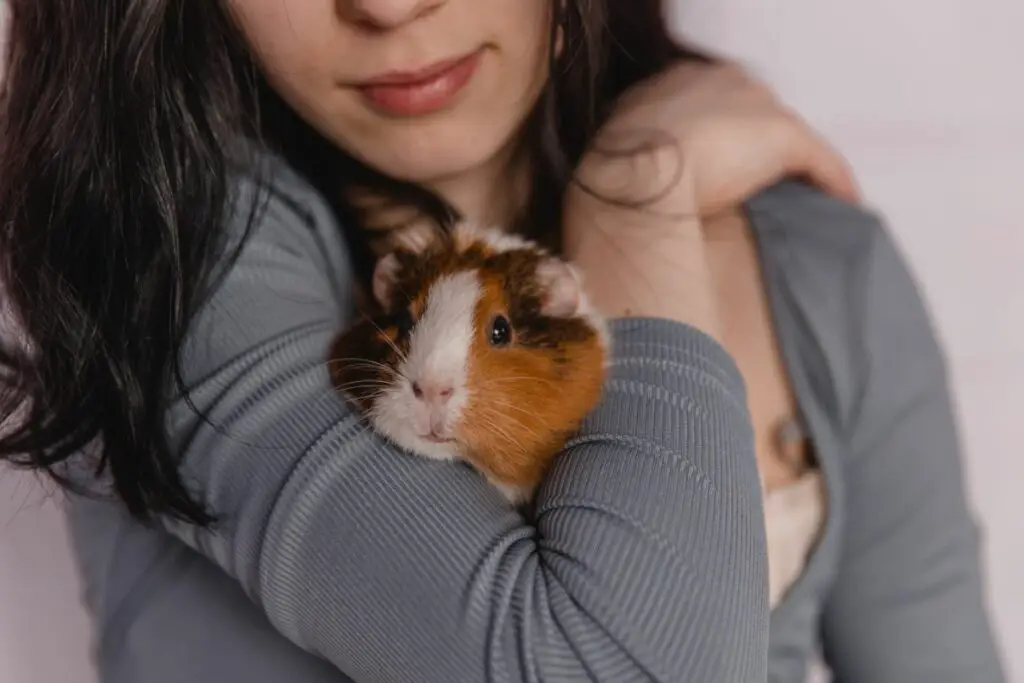Guinea pigs are adorable and lovable pets that are gaining popularity around the world. These furry little creatures are known for their social nature and playful personalities.
I receive a lot of questions about guinea pigs, one of which is whether they are diurnal or nocturnal. In this article, we’ll explore the sleep patterns of guinea pigs and why it’s important to know them.

Understanding Guinea Pig Sleep Patterns
Guinea pigs are considered to be crepuscular, which means they are most active during dawn and dusk. However, they are not strictly diurnal or nocturnal animals. Guinea pigs sleep for several hours throughout the day and night, but their sleep pattern is not continuous. They have multiple naps throughout the day and night, which is why it can be hard to tell when they are awake or asleep.
On average, guinea pigs sleep for around four hours a day, but they can sleep up to nine hours a day. The amount of sleep they need varies depending on factors such as age, health, and activity level.
Factors That Affect Guinea Pig Sleep
Several factors can affect a guinea pig’s sleep pattern, including lighting conditions, environmental factors, age and health, and diet and exercise.
Lighting conditions play a significant role in a guinea pig’s sleep pattern. They are sensitive to light and dark, so they tend to be more active during the day when there is more light and sleep more during the night when it’s dark.
Environmental factors such as temperature, noise, and the presence of other animals can also affect a guinea pig’s sleep pattern. If they are in an environment that is too hot, too cold, too noisy, or too stressful, they may not be able to sleep well.
Age and health are also important factors that affect a guinea pig’s sleep. Young guinea pigs need more sleep than older ones, and if they are sick or in pain, they may sleep more or less than usual.
Diet and exercise can also affect a guinea pig’s sleep pattern. A healthy diet and regular exercise can help them sleep better, while an unhealthy diet and lack of exercise can cause sleep disturbances.
How to Tell If Your Guinea Pig is Awake or Asleep
It can be challenging to tell whether your guinea pig is awake or asleep, especially since they take multiple naps throughout the day and night. However, there are physical cues that you can look out for to determine whether they are awake or asleep.
When guinea pigs are awake, they are alert, active, and have their eyes open. They may also be vocal and move around a lot. When they are asleep, they tend to be still, have their eyes closed, and their breathing is slow and regular.
Another way to tell if your guinea pig is asleep is to observe their sleeping positions. Guinea pigs sleep in several positions, including lying on their sides, curling up in a ball, or stretching out with their legs behind them.
Why Knowing Your Guinea Pig’s Sleep Patterns is Important
Understanding your guinea pig’s sleep patterns is essential for several reasons. First, it helps you understand their needs and behavior. By knowing when they are most active and when they need to sleep, you can create a routine that suits them best.
Second, knowing your guinea pig’s sleep pattern is an excellent way to bond with them. Spending time with your guinea pig when they are awake can help you build a stronger relationship with them.
Finally, sleep deprivation can have severe health implications for guinea pigs. If they don’t get enough sleep, it can lead to stress, depression, and even illness. By knowing their sleep pattern, you can ensure that they get enough rest and stay healthy.
Conclusion
In conclusion, guinea pigs are crepuscular animals that sleep for several hours throughout the day and night. Their sleep pattern is affected by several factors such as lighting conditions, environmental factors, age and health, and diet and exercise. Knowing your guinea pig’s sleep pattern is crucial for understanding their needs, bonding with them, and ensuring their health and well-being. So, pay close attention to your guinea pig’s behavior and sleeping habits, and you’ll be rewarded with a happy and healthy pet.
- How Long Do American Eskimo Dogs Live? Important Factors and Care Tips - September 29, 2023
- Do American Bulldogs Need Grooming? Essential Tips and Care Guidelines - September 29, 2023
- Do Bengal Cats Enjoy Playing? Essential Tips for Keeping Them Active - September 29, 2023